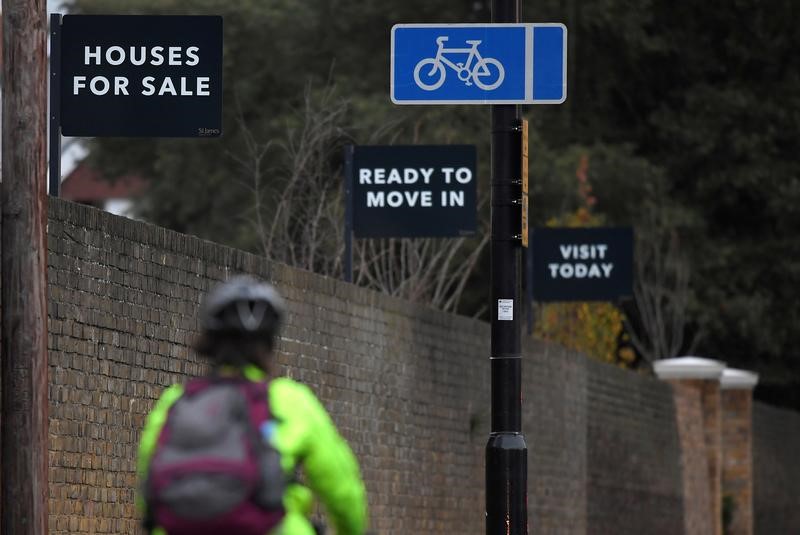LONDON (Reuters) - British house prices edged up last month as widespread falls in London weighed on gains further north, while smaller landlords quit the rental sector due to less favorable tax treatment, a survey showed on Thursday.
The Royal Institution of Chartered Surveyors' (RICS) monthly house price balance rose to +4 in July from an upwardly revised +3, in line with economists' forecasts in a Reuters poll.
Prices in Scotland, Northern Ireland and most of central and northern England rose, while prices in London fell broadly -- though not as widely as earlier in the year -- and prices in other parts of southern England and in Wales were flat.
Property priced at over 1 million pounds ($1.29 million) -- which is common only in London and nearby areas -- was the most likely to see discounts of 10 percent or more on its asking price. Houses advertised for under 500,000 pounds typically sold at or slightly above their asking price.
The price trends are similar to those reported by others such as mortgage lender Nationwide, which said prices nationally rose by 2.5 percent in the year to the end of July.
Somewhat faster price rises are expected by surveyors over the next 12 months, but sales volumes are seen falling at the fastest rate since October. Estate agents have few properties to sell, and there has been no pick-up in prospective sellers.
By contrast, RICS members reported a sharp fall in new rental instructions from smaller landlords, who are losing the ability to deduct mortgage interest and many other expenses from their tax bills, and also face higher purchase taxes.
"The impact of recent and ongoing tax changes is clearly having a material impact on the buy-to-let sector as intended. The risk ... is that a reduced pipeline of supply will gradually feed through into higher rents," RICS chief economist Simon Rubinsohn said.
RICS predicted a 2 percent increase in rents over the next 12 months and a 15 percent rise over a five-year period. Average rents rose 0.4 percent over the past year, official data shows.

Former finance minister George Osborne set out initial changes to the taxation of smaller landlords in 2015 to boost falling home-ownership rates. Commercial landlords who own several properties via an investment company are less affected.